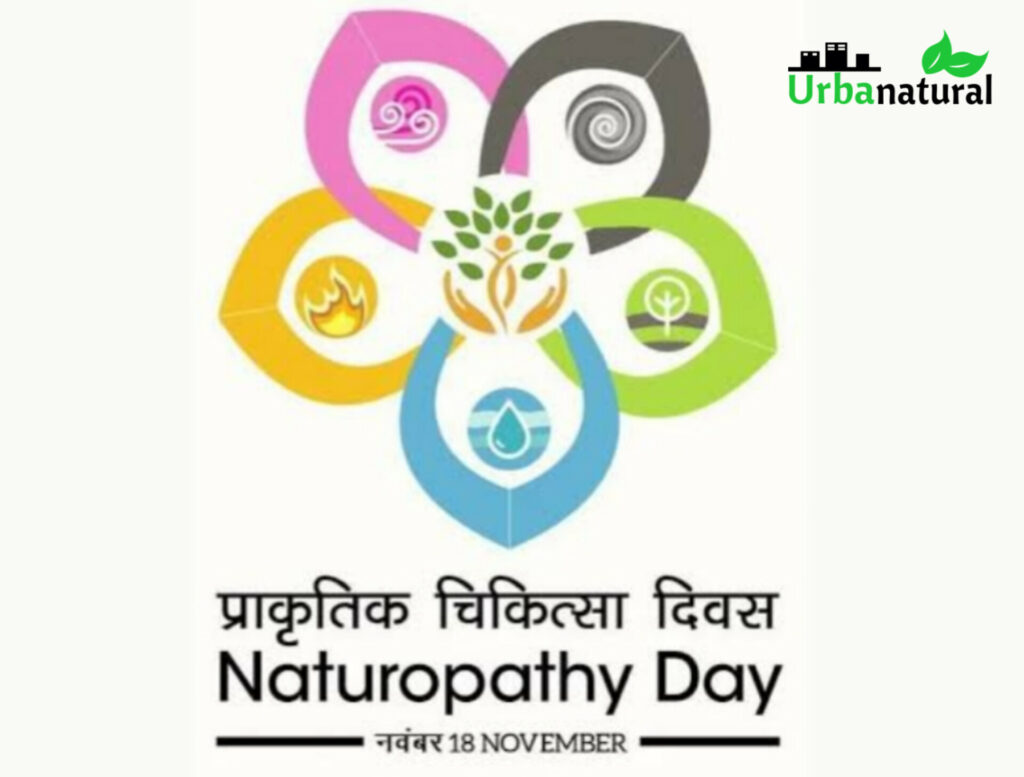By Mark Goddard
The extent to which food can heal physical and mental illness is a source of major controversy. Indeed, you can hardly open a magazine or browse social media without reading about someone who cured their cancer with raw carrots and steamed broccoli! Naturally, oncologists worry that such claims encourage patients to ditch conventional treatment altogether.
Cancer
Cancer is not a single disease. Claims of a “cancer cure,” or “cancer prevention,” are therefore misleading. In fact, cancer is an umbrella term for over 100 diseases, each studied and treated in its own way. All they share is the uncontrolled growth of abnormal cells.
It is also a complex disease, and a clever one. Indeed, in a BBC documentary a British oncologist once described cancer as an “evil genius.” Sadly, many know this from bitter experience. In the early 1970s, President Nixon even declared war on the disease. At the time, many believed it would soon fall to the wonders of modern science. But after decades of research, and billions of dollars, it remains a leading cause of death in the developed world.
Like you, cancer is descended from a single cell. A tumor is made from billions of cells; but it began when one cell freed itself from the normal growth controls. We now know that this loss of control is caused by damage to DNA. The genetic changes and abnormal growth patterns are then passed on when the cell divides. The damage itself can be caused by a variety of things, from sunburn to cigarette smoke.
Thankfully, understanding has improved since the 1970s. As the American physicist Michio Kaku remarked, we are now entering the molecular age of medicine. And understanding cancer’s molecular basis will be vital.
Cells must decide whether to differentiate, meaning to form some tissue or organ, proliferate or, finally, die. A small number of genes in the human genome are involved in this decision. The genes that regulate cell growth can be divided into “proto-oncogenes,” which encourage cell growth, and “tumor-suppressor genes,” which prevent it. Chemicals, viruses, radiation, etc., change those genes or interfere with the way their proteins work.
Prevention
The idea that a healthy diet decreases your chances is hardly new. Even the most skeptical agree that you should eat fresh fruit and vegetables and cut down on processed and junk food. Indeed, the World Cancer Research Fund estimates that if everyone ate five portions of fresh fruit and vegetables a day, cancer rates would drop by 20%. They further estimate that three out of every four stomach and colon cancers could have been prevented by dietary changes alone.
But could a radical change reduce your risk still further? Why is it, ask the advocates, that a woman in Germany is far more likely to develop breast cancer than a woman in Japan? And why are some forms of cancer practically unknown in certain parts of the world? In his best-selling book How Not to Die, Dr Michael Greger writes at length about this, using India and the USA as examples. Overall the United States is a much richer nation. And one would assume that the richer a society is, the better its medicine and the healthier its citizens. One would also expect cancer rates to be lower. But for numerous different cancers the rates are in fact much higher.
An American woman is eight times more likely to develop bladder cancer than her Indian equivalent, five times more likely to develop breast cancer, and seventeen times more likely to develop lung cancer. As for men, an American man is eleven times more likely to develop colorectal cancer and twenty three times more likely to develop prostate cancer. One possible explanation is that the richer people become the more sugar and junk food they consume. (In the UK, for example, those desperate to preserve the taxpayer-funded NHS point out that the nation’s health was better during World War Two. Butter, cheese, and above all sugar were rationed. People also ate more vegetables, since anyone could and did grow them. And of course they simply ate less overall).
In his comparison, Dr Greger focuses on digestive cancers. Making use of various studies, he suggests that Indians experience a lower rate because less than one in 10 eat meat on a daily basis. Instead, they consume lots of legumes and dark green vegetables. These contain cancer-fighting compounds known as phytates. Indians also smother these foods in spices, especially turmeric, that may have an anti-cancer effect.
Of course, what you don’t eat can be just as important. For example, eating beef or pork cooked at high temperatures increases your risk. Worst of all is meat half-burnt on a barbecue. Meat cooked above 100C contain substances known as HCAs, or heterocyclic amines. Essentially, the longer the meat is cooked, the more HCAs form – and HCAs are cancer-producing. The Iowa Women’s Health Study found that women who ate lots of meat and preferred it well done were four times more likely to develop breast cancer than those who liked their meat rare.
The Times health journalist Hazel Courtenay shares Dr Greger’s view that cancer can be prevented by diet, though she acknowledges the role of stress, pollution, and even loneliness. She advises a plant-based diet, reducing or eliminating dairy produce, refined carbs, and sugar. She also discourages people from re-heating food in plastic containers and from frying or burning meat. Instead, she favors raw, organic fruit and vegetables. Foods rich in carotenes, such as watercress and carrots are very good. And something like raw cabbage is especially good. According to Courtenay, just one serving of raw cabbage a week halves your risk of colon cancer.
Treatment
More controversial by far is the claim that you can treat and even reverse cancer through dietary changes alone. Privately, many oncologists will tell you about some patient who rejected chemotherapy and cured herself through a change in lifestyle. But the same oncologist will recall another patient who came under the spell of a well-meaning dietician, gave up conventional treatment, and died a painful death.
While this is an exciting and interesting subject, it must be remembered that conventional treatments are not some vast conspiracy. Oncologists would not subject their patients to such things if they believed a simpler cure existed. Indeed, they would not subject themselves and their loved ones to such things. Still, even oncologists have their prejudices and blind spots.
In The Age Revolution, Clark criticises fellow doctors for downplaying the role of nutrition and for blaming illness on genetics and aging. Dr Greger also expresses anger at the “paltry 21 hours of nutrition training” he received at medical school and the “countless steak dinners and fancy perks” offered to him by the representatives of pharmaceutical companies. As Greger points out, there is big money in the latest cancer drugs, little in carrots and broccoli.
Let’s take prostate cancer as an example. So common is this that the majority of men develop it at some point, though many die of something else first. In 2005, Dean Ornish, a medical doctor and author, wanted to see if dietary changes could not only prevent but treat cancer. Along with colleagues, he recruited 93 men who had refused conventional treatment and divided them into two groups. The first were to continue life as normal, doing nothing beyond what their doctor had advised. The second group were placed on a strict diet of fresh fruit, vegetables, and whole grains. The progression of their cancer was then tracked via their PSA levels (a marker of prostate cancer growth).
After a year, those in the first group had seen their PSA levels increase by 6%. Those in the second group had decreased their PSA levels by 4%. Without using any conventional treatments Dr Ornish had managed to shrink their tumours. The biopsies even suggested that gene expression had changed.
Now take another mass killer, colorectal cancer. It is believed that natural compounds known as phytates, found in beans, nuts, seeds and whole grains, could be used to treat this. Doctor Greger cites petri-dish studies suggesting that phytates inhibit cancerous cell growth while leaving normal cells untouched. Even more impressive, other studies suggest they encourage cancer cells to revert back to a non-cancerous state.
Of course, some cancers are inherited. And thanks to advances in genetics, we can identify such threats. A famous example is the actress Angelina Jolie, who underwent a double mastectomy after learning that she had inherited mutations in the BRCA1 and BRCA2 “caretaker genes.” Jolie did not have cancer, but she was at high risk. Many find this idea terrifying, seeing themselves as helpless victims of their genes, doomed to the same lung or prostate cancer as their father. But we now know that genes can be switched on or off – possibly by diet.
Dr Greger writes in detail about this. According to him, the vast majority of breast cancer patients do not inherit the disease (Greger believes it is as few as two or three per cent). The majority of breast cancer patients have perfectly healthy BRCA genes. The BRCA1 and BRCA2 genes are cancer suppressors that repair DNA. Breast cancer tumors prevent this repair. They stop the BRCA genes through a process known as methylation. In effect, though the gene is operational, the cancer has turned it off, enabling it to spread. Greger believes that the isoflavones in soya could turn the BRCA protection back on. (To achieve this, a woman would need to eat huge amounts of soybeans, by the way). Still, as Greger puts it, “no matter what genes you inherit, changing your diet may be able to affect DNA expression at a genetic level, potentially boosting your ability to fight disease.”
Again, it must be emphasized that you should listen to your oncologist. If you have cancer, ignoring their advice could cost you your life. That said, evidence suggests that a healthy diet certainly reduces your risk. As for fighting it, again the right changes appear to help.
The best approach would surely be holistic: making use of both the latest scientific breakthroughs (such as Immunotherapy) and dietary changes.
Disclaimer: All information, data and material has been sourced from multiple authors and is for general information and educational purposes only and are not intended to replace the advice of your treating doctor.
The views and nutritional advice expressed are not intended to be a substitute for conventional medical service. If you have a severe medical condition or health concern, see your physician.





